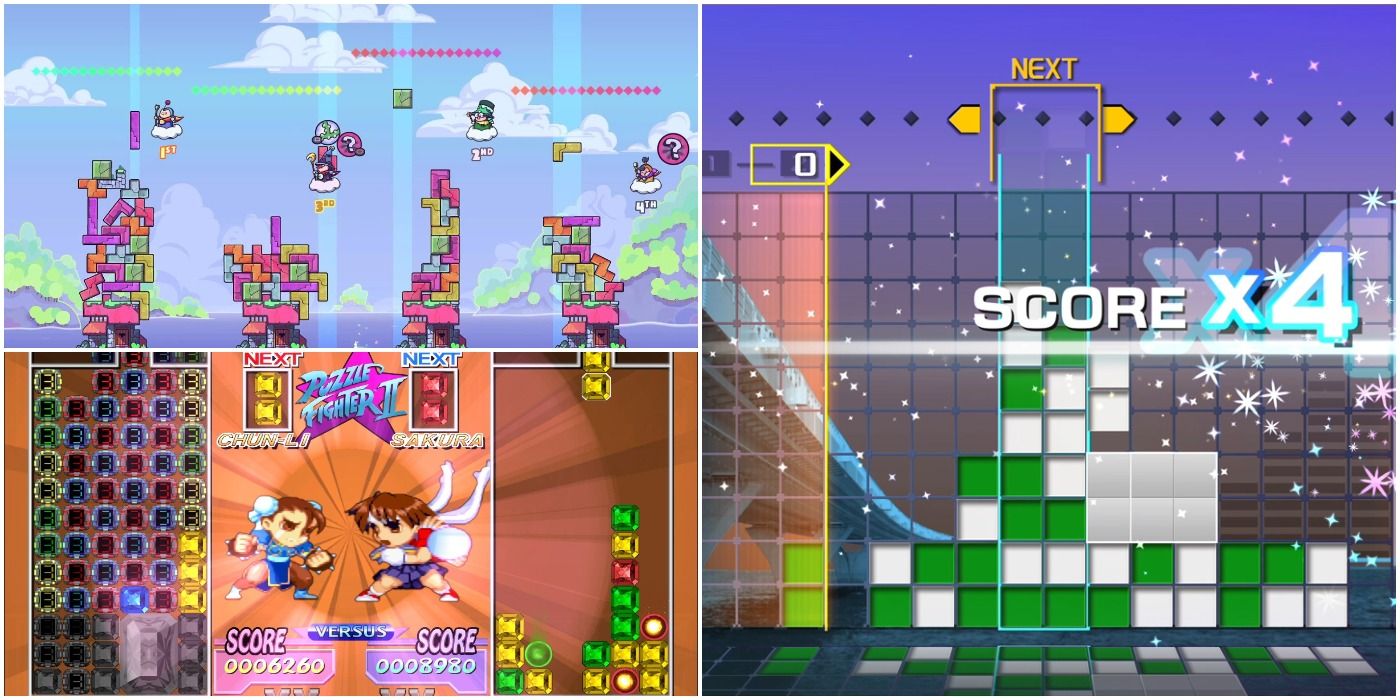Unlock Your Brain's Prospective With Challenging Problem Gamings
Testing challenge video games provide an appealing opportunity for boosting cognitive function and psychological skill. These brain-teasers, ranging from logic-based conundrums to intricate jigsaw puzzles, not only provide entertainment however likewise stimulate critical thinking and sharpen problem-solving skills. As one navigates with these mental difficulties, the possibility for improved memory retention and increased attention to detail ends up being apparent. The real influence of these video games on cognitive development may expand far beyond mere amusement. What certain advantages can they supply in the world of daily thinking and decision-making? This question warrants additionally exploration.
Benefits of Puzzle Games
Involving in problem games offers a wide range of cognitive advantages that expand beyond simple entertainment. This is attained with pattern recognition and the psychological control of shapes and ideas, which are essential elements of several puzzles.
Moreover, puzzle games improve focus and interest to information. As gamers immerse themselves in addressing complex problems, they create the ability to focus for prolonged periods, an ability that is transferable to real-world situations. Furthermore, challenges often require a tactical approach, promoting essential thinking and the ability to evaluate scenarios from multiple perspectives.

Sorts Of Challenging Challenges
Challenge video games come in a diverse range of kinds, each offering distinct obstacles that satisfy various cognitive abilities. These problems range from the typical to the modern-day, engaging gamers in various ways. One of the most popular types is the reasoning puzzle, such as Sudoku, which calls for deductive reasoning and pattern recognition. These problems challenge the gamer to fill out missing out on components based upon given constraints, cultivating critical reasoning.
Another group is the jigsaw problem, which take advantage of spatial awareness and aesthetic perception. By piecing together little sectors to form a complete picture, gamers enhance their capability to imagine and turn items psychologically. Crossword problems, on the various other hand, are language-based, challenging individuals to remember vocabulary and basic synonyms, thereby exercising spoken skills and memory.
In addition, there are mechanical problems, like the Rubik's Dice, which require critical preparation and hand-eye sychronisation. These puzzles call for a sequence of transfer to reach the wanted end result, motivating gamers to believe a number of actions in advance. Electronic problems, such as escape room video games, incorporate numerous aspects of logic, spatial thinking, and teamwork in a virtual setting, using a thorough difficulty that boosts multiple cognitive faculties at the same time.
Improving Cognitive Skills
The benefits of challenge games expand beyond enjoyment, functioning as useful devices for enhancing cognitive abilities. Involving frequently in these psychologically revitalizing activities can significantly develop various psychological faculties, such as analytical, memory, and focus to detail. Challenge games require gamers to assume critically and strategically, promoting an environment where abstract thinking is essential. This repeated workout of imagination improves neural links, promoting cognitive flexibility and flexibility.
Additionally, challenge video games play a pivotal role in improving memory retention. Numerous problems, like Sudoku or crosswords, demand that gamers remember particular information or use previously discovered strategies to address them. This technique therefore enhances the brain's ability to shop and fetch details extra successfully. Furthermore, puzzles typically necessitate continual focus and focus, which can enhance concentration skills in time. This heightened interest to detail is advantageous not just within the context of video gaming yet likewise in real-world scenarios requiring accuracy and precision.
Furthermore, the problem-solving see here now aspect of problems urges creativity, as players find out to come close to challenges from different angles. This skill is specifically indispensable in dynamic workplace, where cutting-edge options are frequently called for. In general, problem video games contribute in fostering a sharper, more nimble mind.
Picking the Right Game
Selecting the ideal puzzle video game is crucial for optimizing cognitive benefits. Various challenge games target various cognitive skills, such as problem-solving, memory, spatial thinking, or rational thinking.

Furthermore, considering your personal passions can sustain motivation and involvement, which are vital for long-term cognitive development. A game that aligns with your passions or hobbies will likely hold your passion longer, making certain regular cognitive workout. Eventually, selecting a game that lines up with both individual passions and cognitive purposes will certainly produce one of the most helpful outcomes, cultivating a effective and appealing mental exercise.
Tips for Making Best Use Of Advantages
To totally harness the cognitive benefits of problem video games, it is crucial to use approaches that maximize their influence - Multiplayer go to my blog puzzle games for free. First, uniformity is key; regular interaction with puzzle games can cause continual cognitive advantages. Reserve specialized time daily to involve with these video games, ensuring it enters into your routine. Variety matters. Diversifying the sorts of problems you play-- such as crosswords, Sudoku, or logic challenges-- boosts different cognitive abilities and stops psychological stagnation.
Starting with less complex puzzles and progressively taking on more difficult ones can boost problem-solving abilities and cognitive strength. It is likewise useful to involve in reflective method; after completing a challenge, take a moment to analyze the techniques you employed and think about alternate methods.

Final Thought
Including difficult problem video games right into day-to-day regimens supplies considerable cognitive benefits, enhancing mental acuity and analytical capabilities. By involving on a regular basis with a variety of challenges, such as logic jigsaws, games, and crosswords, people can boost memory retention and crucial thinking abilities.
Challenging challenge games present an appealing possibility for boosting cognitive feature and mental skill.Puzzle games come in a diverse range of kinds, each offering special challenges that provide try this site to various cognitive abilities.The benefits of puzzle video games extend past enjoyment, serving as beneficial devices for enhancing cognitive skills. Different puzzle video games target different cognitive skills, such as problem-solving, memory, spatial reasoning, or rational reasoning. Branching out the kinds of challenges you play-- such as crosswords, Sudoku, or logic puzzles-- stimulates different cognitive skills and protects against mental stagnancy.